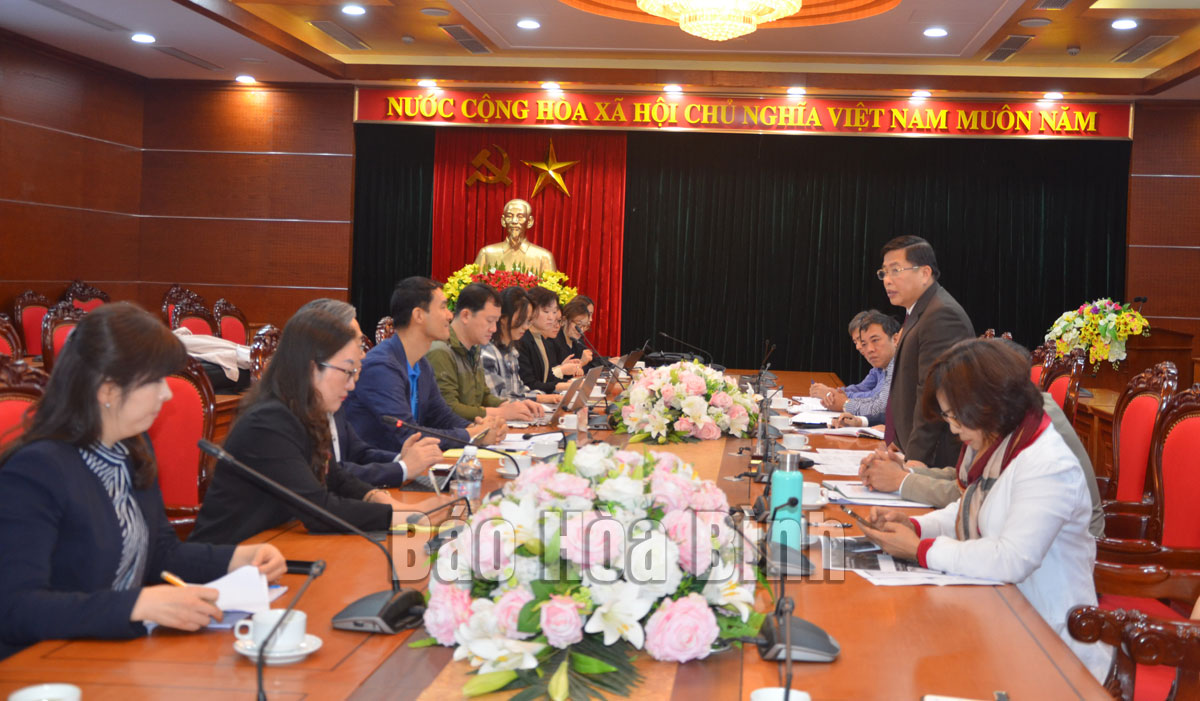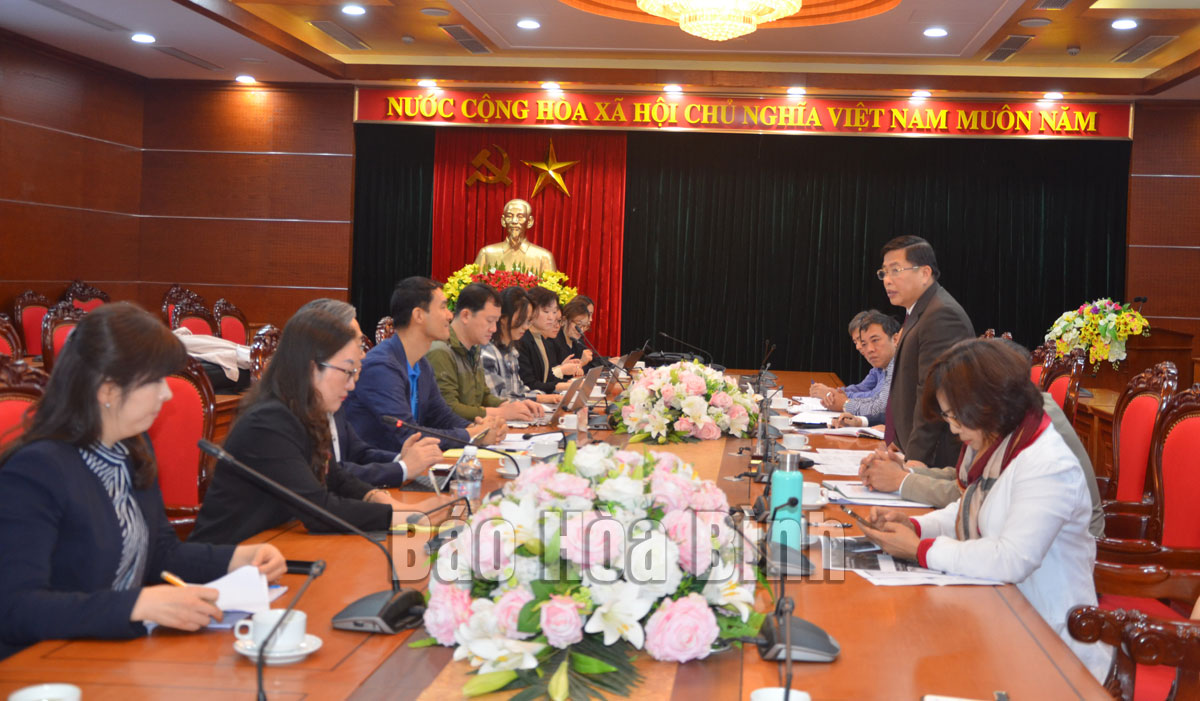
(HBO) - A delegation from the Korea International Cooperation Agency (KOICA) led by Director General of KOICA's Department of Corporate Partnership Lee Sang-back had a working session with the provincial People's Committee on a public-private partnership project on reducing emissions from deforestation and forest degradation in developing countries (REDD+) on March 29. It was received by Dinh Cong Su, Vice Chairman of the provincial People's Committee, and representatives from local departments and sectors.
Dinh Cong Su, Vice Chairman of the
provincial People's Committee, speaks at the working session.
KOICA was established by the Korean government
in 1991 with the mission of implementing non-refundable aid programmes for
developing countries, including Vietnam. Every year, KOICA receives more than 1
trillion KRW from the Korean government to support its partner countries.
Apart from the financial support, through KOICA,
the Korean government has shared its experience in the fields of education,
healthcare, public administration, rural development, information technology,
industry and energy, environment, climate change response, and the Sustainable
Development Goals. It also provided expertise in disaster response and
reconstruction.
The above-said PPP project - a technical
assistance one – aims to provide a forest management and monitoring system
based on information-technology and a carbon trading platform.
Specifically, the project applies technological
solutions such as satellite imagery, remote-sensing technology, and machine
learning to accurately estimate the amount of carbon credits and reduce
wildfires and landslides through warning and quick response using AI-based
sensors and an automatic irrigation system in order to manage forests
effectively.
The project is expected to be rolled out in 15
cities and provinces with a total forest area of 5.6 million hectares,
including 1.5 million hectares in hotspots of deforestation and forest
degradation.
KOICA expects Hoa Binh to be the first province
to participate in the project, which features four main activities: reducing
emissions from deforestation and forest degradation, absorbing carbon from
afforestation and reforestation, restoring and protecting natural forests, and
enhancing livelihoods for ethnic minorities.
At the working session, the participants
discussed procedures, advantages, difficulties in the project implementation,
and mechanisms and policies to attract investment in the local forestry sector.
In his remarks, Su expressed his pleasure at
KOICA’s selection of Hoa Binh for the project on reducing emissions from
deforestation and forest degradation, which is also the locality’s strength.
Hoa Binh wishes to continue joining hands with
KOICA in the project implementation, he said/.
According to data from the Hoa Binh Provincial Party Committee, the industrial production index for the first six months of 2025 is estimated to have increased by 20% compared to the same period last year. This marks the highest year-on-year growth rate for this period since 2020.
In the first six months of 2025, Hoa Binh province’s export turnover was estimated at 1.145 billion USD, marking an 18.11% increase compared to the same period in 2024. Import turnover was estimated at $ 804 million, a 17.15% increase, which helped the province maintain a positive trade balance.
The lives of the ethnic minority farmers in Tan Lac district have gradually improved thanks to the new directions in agricultural production. This is a testament to the collective strength fostered through the professional associations and groups implemented by various levels of the district’s Farmers’ Union.
With the motto the "product quality comes first,” after nearly one year of establishment and operation, Muong village’s Clean Food Agricultural and Commercial Cooperative, located in Cau Hamlet, Hung Son Commune (Kim Boi district), has launched reputable, high-quality agricultural products to the market that are well-received by consumers. The products such as Muong village’s pork sausage, salt-cured chicken, and salt-cured pork hocks have gradually carved out a place in the market and they are on the path to obtaining the OCOP certification.
In the past, the phrase "bumper harvest, rock-bottom prices" was a familiar refrain for Vietnamese farmers engaged in fragmented, small-scale agriculture. But today, a new spirit is emerging across rural areas of Hoa Binh province - one of collaboration, organisation, and collective economic models that provide a stable foundation for production.
Maintaining growing area codes and packing facility codes in accordance with regulations is a mandatory requirement for agricultural products to be eligible for export. Recently, the Department of Agriculture and Environment of Hoa Binh province has intensified technical supervision of designated farming areas and packing facilities to safeguard the "green passport" that enables its products to access international markets.



